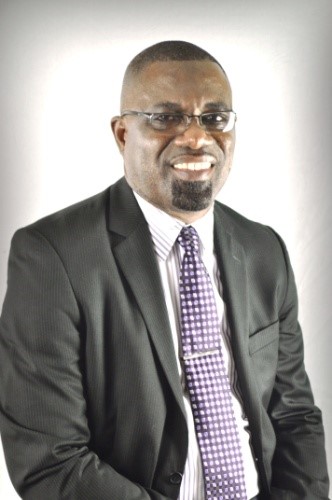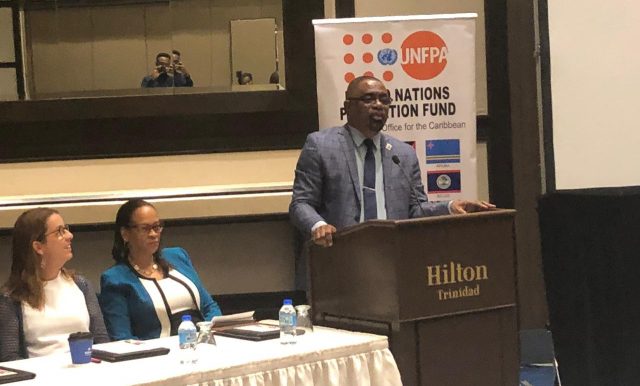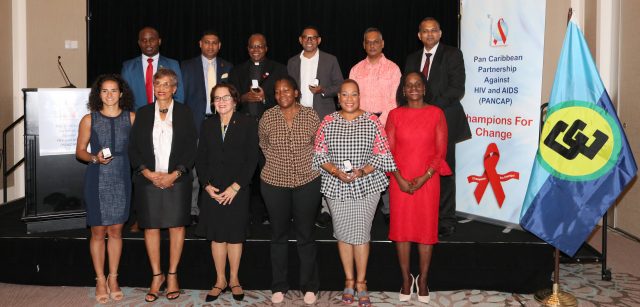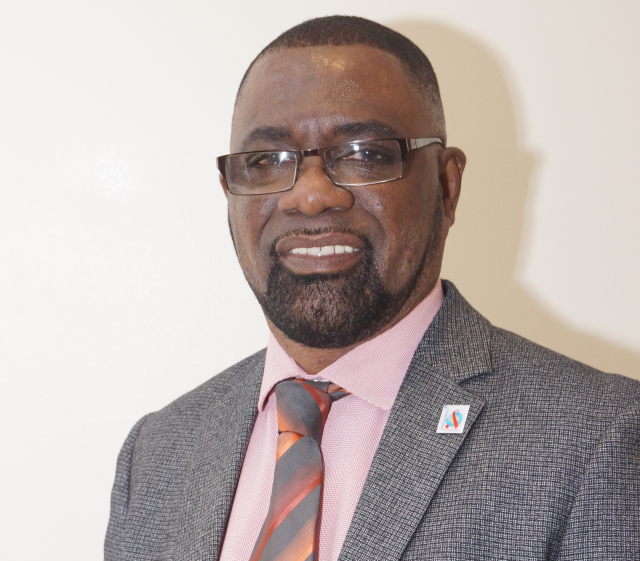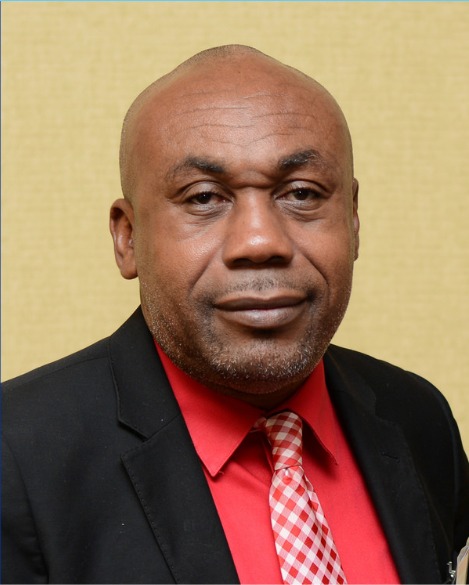I bring you greetings on behalf of Dr The Honourable Timothy Harris, Prime Minister of St. Kitts and Nevis and Lead Head with responsibility for Human Resources, Health and HIV and Ambassador Irwin LaRocque, Secretary-General of the Caribbean Community.
I wish to congratulate UNFPA for convening this follow-up meeting to the 2018 High-Level Dialogue on Comprehensive Sexuality Education (CSE) in Health and Family Life Education (HFLE) and to acknowledge the support of other partners.
A recent evaluation of the Caribbean Regional Strategic Framework on HIV and AIDS, 2014 to 2018, found that Age-appropriate, gender-sensitive, evidence-informed programmes that provide comprehensive sexual and reproductive health education, being delivered throughout the education sector and in community settings, had not been met during the period under review. The evaluation found that there was inadequate provision of HIV life skills based on sexuality education, and implementation of the HFLE curriculum is uneven across Caribbean countries, ranging from no implementation to limited implementation at three levels (primary, secondary and teachers training institutions). This finding was supported by the analysis of the PANCAP Partners’ Survey which revealed that capacity was limited in the delivery of age-appropriate, gender sensitive, evidence-informed programmes that provide CSE throughout the education sector and the community and in providing technical guidance and support to establish and maintain high-quality standards for prevention programmes.
It was therefore not surprising that UNAIDS data on adolescents suggest that they are highly vulnerable because of early and forced initiation of sex; high pregnancy rates; and low level of knowledge about HIV prevention. Key population youth remain at particularly high-risk with reports of estimated HIV prevalence among gay and bisexual adolescent boys as high as 14% to 27%, and 27% in transgender adolescents.
The same evaluation recommended that governments should support the revision and strengthening of the HFLE curriculum to include more relevant age-appropriate information on stigma and discrimination with reference to youth and adolescents, and especially information on sexuality, sexual and reproductive health including HIV and AIDS and other STIs.
Given the serious concerns regarding the findings of the CRSF 2014-2018 evaluation in relation to the inadequate impact of the prevention response in the Region, the PANCAP Executive Board called upon national governments to take note that while tens of thousands of cases of HIV infections have been prevented, we need to significantly reduce new infections. This requires us to promote age-appropriate sexual education and skills and extend sexual reproductive health services to all youth and key populations and to advocate for the introduction of innovative prevention approaches and improve the quality of prevention services to ensure greater impact in reducing new HIV infections.
In 2017, PANCAP developed a Caribbean Regional Youth Advocacy Framework on Sexual and Reproductive Health and Rights. It identified the need to address the dissonance between the age of consent for sex (16 in most territories and the age at which adolescents can access SRH services (18 years); comprehensive sexuality education to be implemented in schools across the Caribbean, where it is not a usual phenomenon; and advocacy towards gender-inclusive policies and laws. To advance these priorities, a Regional Youth Steering Committee, comprised of CARICOM Youth Ambassadors and Key Population Youth Leaders, was established in July 2017 to oversee the implementation of the Framework. To effectively do this, youth leaders were trained to advocate for substantive policy changes across the region in support of reducing their vulnerability to HIV infection by improving access to HIV combination prevention, care, treatment and support services, in recognition of their sexual and reproductive health and rights. In May 2018, the Second Regional Meeting of Youth Leaders on SRH and Rights was convened and over 40 youths from CARICOM Youth Ambassadors, youth leaders from Key Populations agreed to advance the priorities of the Caribbean Regional Youth Advocacy Framework.[1] Youth representatives have been engaged in high-level advocacy with Ministers of Education and Health at the 2018 High-Level Dialogue on CSE in HFLE, and 2018 COHSOD–Ministers of Health on the priority issues mentioned earlier. They have also been positioned to represent Caribbean youth on the PAHO EMTCT TWG and the recently established PAHO Youth Advocacy Group. In relation to the latter, two of these youth recently attended its inaugural meeting which was held in Washington D.C. and actively participated in a workshop on School Health Programming. One of them is present with us here today – Dennis Glasgow, who is also the youth representative on the PAHO EMTCT TWG.
To facilitate a greater understanding of CSE, PANCAP synthesised the UNESCO International technical guidance on Sexuality Education: An evidence-informed approach, into nine infographics that contain key messages on the different aspects of sexuality education. The infographics are on: Health and Wellbeing; Relationships; Sexuality and Sexual Behaviours; Skills for Health and Wellbeing; The Human Body and Development; Understanding Gender; Values, Rights, Culture and Sexuality and Violence and Staying Safe. These were developed primarily for faith leaders and other PANCAP stakeholders, to demystify comprehensive sexuality education, facilitate their buy-in and reduce opposition to the rollout of the curriculum in schools. We are awaiting feedback from the Regional Consultative Committee of Faith Leaders.
The Partnership is currently developing a CRSF 2019-2023 which acknowledges that young people face persistent challenges to realising their sexual and reproductive rights, including the gap between the age of sexual consent (16) and the age (18) at which they can independently access health services, for example, HIV testing. Cognisant of these lessons, the draft CRSF 2019-2023 clearly articulates as a strategy – the need to design, resource, pilot, evaluate, and scale-up regional cross-sectoral initiatives, to implement comprehensive sexuality education in schools with high levels of risky behaviour.
I believe that we all hold the view that the delivery of CSE in schools must receive buy-in from parents and guardians, religious leaders and community gatekeepers for its successful implementation in the school system. My own experience as a science teacher, designer and facilitator of youth peer education and as a consultant, who in 2008 was tasked with evaluating Guyana’s implementation of HFLE has helped me to better understand the critical importance of engaging parents, faith leaders, community gatekeepers. It is essential to help them to understand what we mean by CSE and clearly articulating its benefits to obtain their buy-in. We must advocate for the inclusion of CSE in the curriculum of teacher training institutions to enable every graduate teacher to enter the school system with the knowledge and skills, and level of comfort to deliver CSE in HFLE. CSE cannot, and must not be delivered as an academic subject. This may require revitalising the creative thinking of some of our teachers to enable them to include CSE in HFLE.
Our young people continue to call upon us to engage them in the design of such programmes to reduce their risk and vulnerability. Only recently, Dennis Glasgow made that call at the “Women Deliver Conference” in Vancouver, Canada. Let us, therefore, answer that call and ensure meaningful engagement and involvement of our young people so programmes can be adapted/developed to meet their needs. As parents, we all have a responsibility to ensure that our children, including those who are adolescents and young adults, are given the tools to develop life skills that would enable them to make choices that will reduce their vulnerability, and most importantly allow them to survive in today’s complex and fast-moving world. A world in which many of them are growing up without extended family and community support. A world in which they now have easy access to information through the many digital platforms. A world in which they often feel alone and unsupported. I, therefore, challenge us all, particularly our policymakers to move beyond the conversations in these rooms to decisive action following this meeting. I wish us all a productive meeting.
Thank you.
[1] https://pancap.org/what-we-do/youth/

